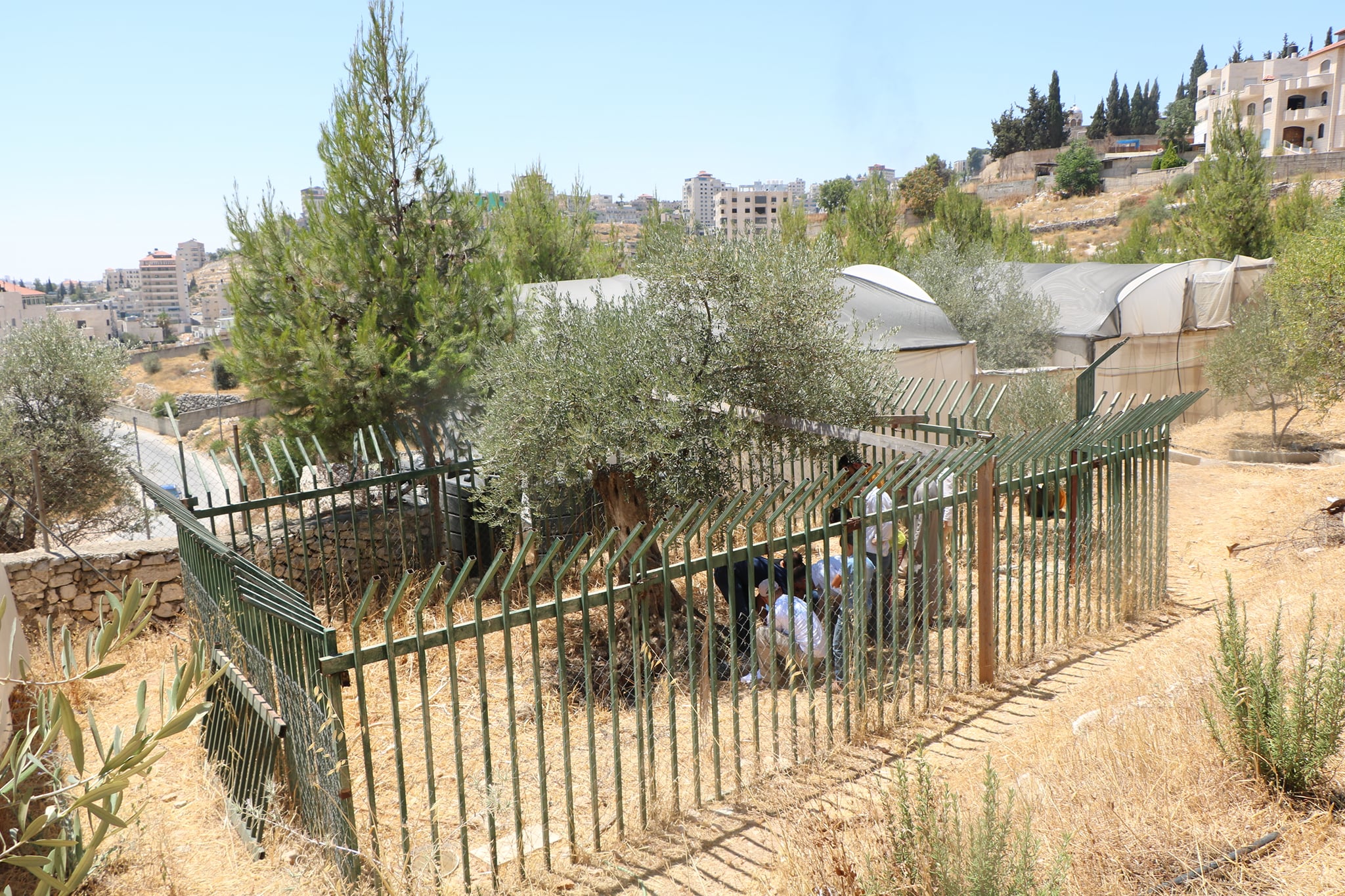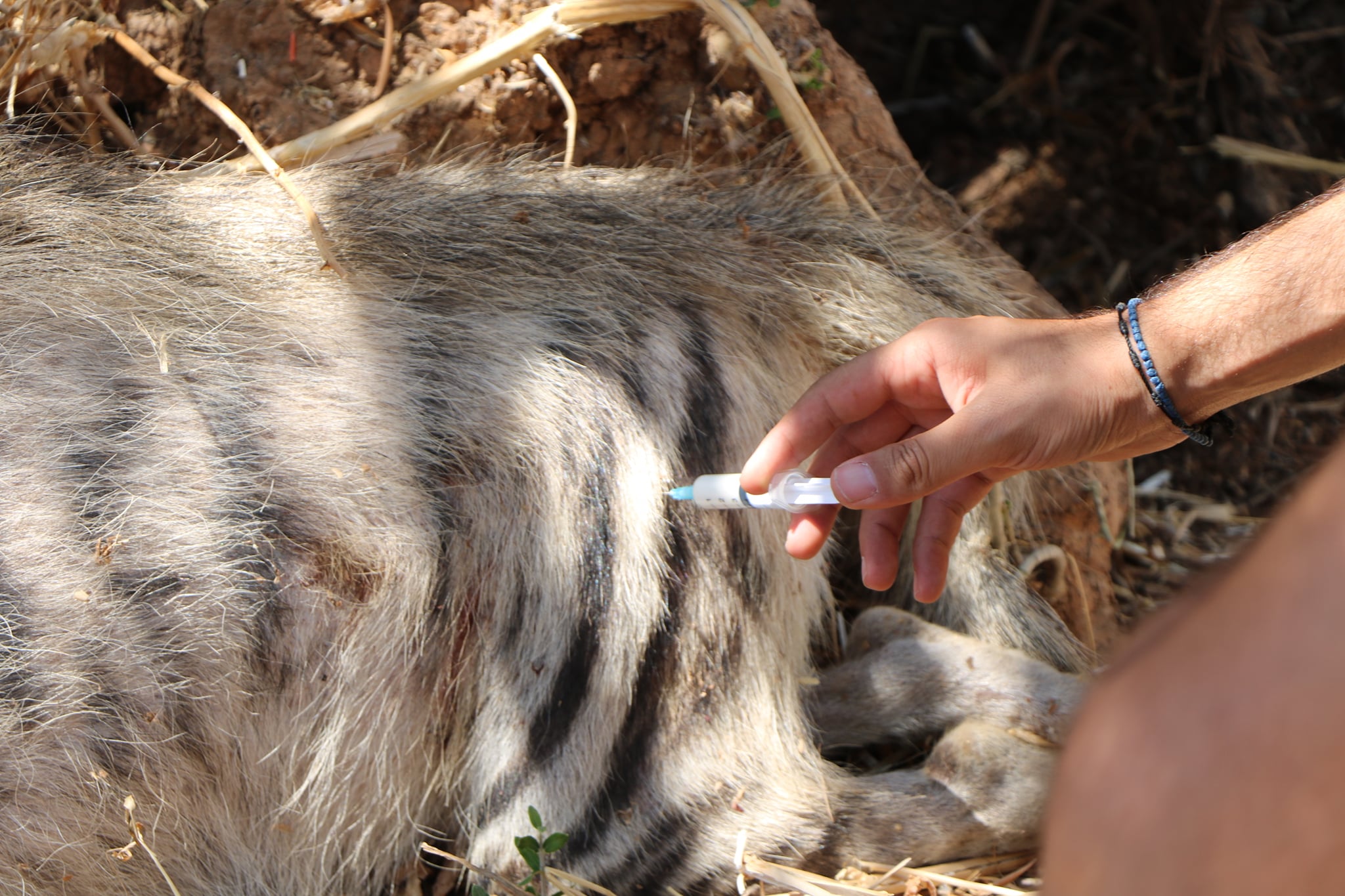Biodiversity Laboratories
Molecular Lab
The Molecular Research Laboratory, established with collaborative funding from the European Union “Unity and Diversity in Nature and Society” and a Royal Society grant “British and Palestinian Museum Collaboration in Research, Education, and Conservation," marks a significant milestone for the Palestine Institute for Biodiversity and Sustainability. By conducting genetic experiments on species gathered during fieldwork, the laboratory deepens our comprehension of medical correlations between these species and others, including humans, across morphological, cytogenetic, and molecular levels. This initiative lays the foundation for future phylogenetic studies and the advancement of medical zoology and entomology units. Furthermore, the lab's innovative techniques, such as environmental DNA (eDNA) metabarcoding and classic barcoding, contribute to assessing the biodiversity of fauna and flora samples in Palestine. The establishment of a comprehensive DNA database for local biodiversity not only serves as a national reference for Palestinian fauna and flora but also positions the institute as a key contributor to research, education, and conservation efforts. Our lab, equipped for DNA extraction, gel documentation, PCR, and more, offers opportunities for researchers and students to delve into the genetic material of our region's fauna and flora. We welcome collaboration in research and education, providing training modules for students, and fostering partnerships with international researchers.
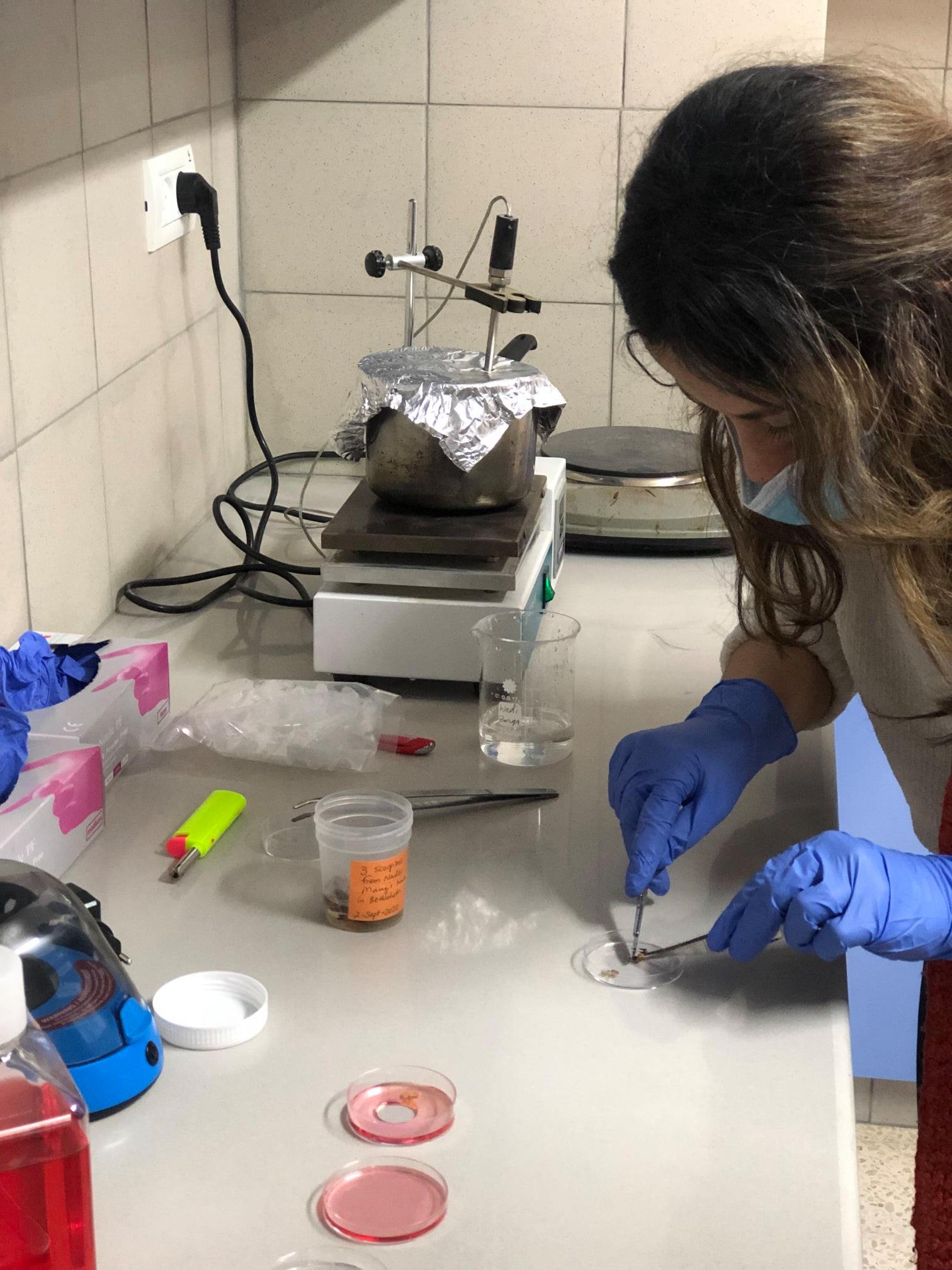
Taxonomy Lab
The Taxonomy Lab at the Palestine Institute for Biodiversity and Sustainability,supported by the EUPI project in 2020 and established as a specialized hub for research, marks a significant milestone. This lab is critical in the systematic classification and identification of species, serving as a hub for researchers and scientists to examine the morphological, anatomical, and molecular characteristics of a wide range of species using tools like microscopy, DNA analysis, and dissection. We use these methods to categorize and organize species into hierarchical groups based on their evolutionary links, with the ultimate objective of developing a comprehensive and accurate taxonomy that reflects Palestine's rich biodiversity. The Taxonomy Lab is important for more than just classification; it helps us comprehend biodiversity, evolution, and ecological linkages. This laboratory serves as a critical center for furthering knowledge and promoting a deeper appreciation of the complicated web of life on our planet by providing insights applicable to a wide range of areas, from ecological protection to medical and agricultural sciences
Herbarium Lab
The Herbarium Lab is a dedicated botanical research facility focused on preserving, documenting, and analyzing plant specimens. Herbarium is a collection of plants that usually have been dried, pressed, preserved on sheets and arranged according to a specific system for future study and research. Within our herbarium unit, >1620 curated floral specimens are preserved in our herbarium unit.
The preparation of a herbarium involves many steps:
1. Field visits and specimen collection: In the fields, you have to collect specimens that possess all parts including the root system, flowers and fruits. The collected specimens must be tagged with necessary information (PMNH number, location and date of collection).
2. Pressing and drying: The specimens are spread out between the folds of old newspapers avoiding overlapping of parts and placed in plant pressor and monitored daily to prevent mold and moisture development
3. Mounting: The dried specimens are mounted on acid- free herbarium sheets.
4. Labeling : The label should indicate the information about the locality, altitude, date of collection, name of collector, complete scientific name etc.
5. Storage: The plant specimens are placed in thin paper folds and then stored into the herbarium cupboards.
Through careful collection, drying, and pressing, specimens are cataloged for future reference. We use different techniques, like specimen imaging and DNA analysis, to explore plant biodiversity, taxonomy, and evolution. The lab's extensive collection aids in plant identification and contributes to ecological and conservation studies. It serves as a crucial resource for expanding our knowledge of plant life, supporting botanical research, and providing information for scientists, educators, and environmentalists. As a hub for plant science, the Herbarium Lab promotes a deeper understanding of diverse plant species and their essential role in maintaining ecological balance.
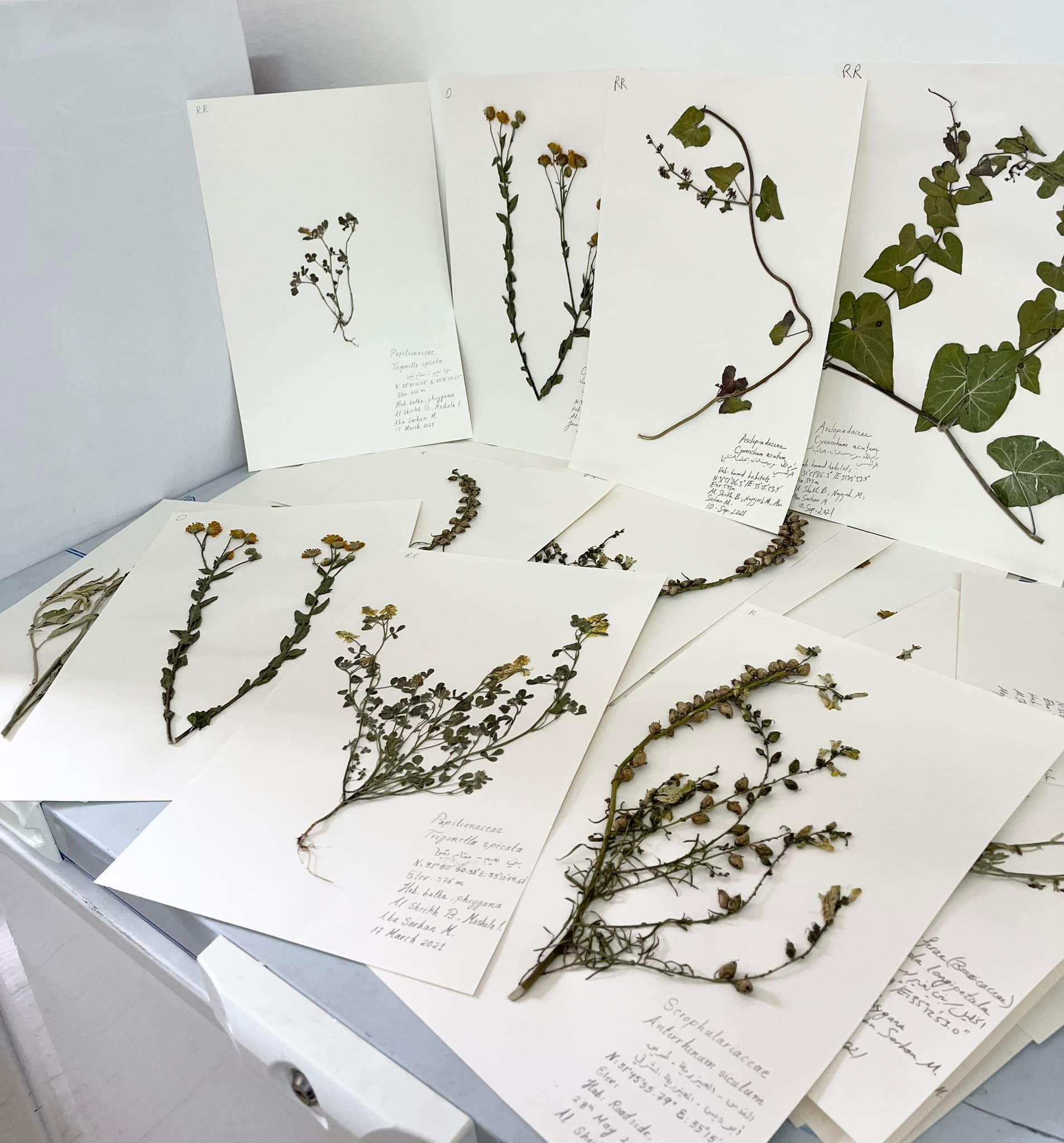
Cytogenetic Lab
This cytogenetics laboratory, established in 2008, is a pioneering project being the first of its kind on the West Bank. It has been recognized as the only Palestinian laboratory engaged in a significant study, particularly with our master's students, on malignancies, clinical cytogenetics, and the genotoxicity of pollutants within Palestine. The primary focus of the laboratory is the valuable medical and biological significance of chromosomal rearrangements. These genetic changes are crucial to several essential characteristics. For example, they play an important role in cases of infertility and fetal loss during the first trimester. Furthermore, they contribute to over 400 clinical syndromes characterized by specific chromosome abnormalities, with approximately one in every 200 newborns exhibiting such abnormalities, and they are crucial in the diagnosis and treatment of various cancers, particularly those affecting blood and bone marrow. The lab's mission to support cytogenetics research emphasizes its critical role in addressing major medical and genetic concerns in the region.
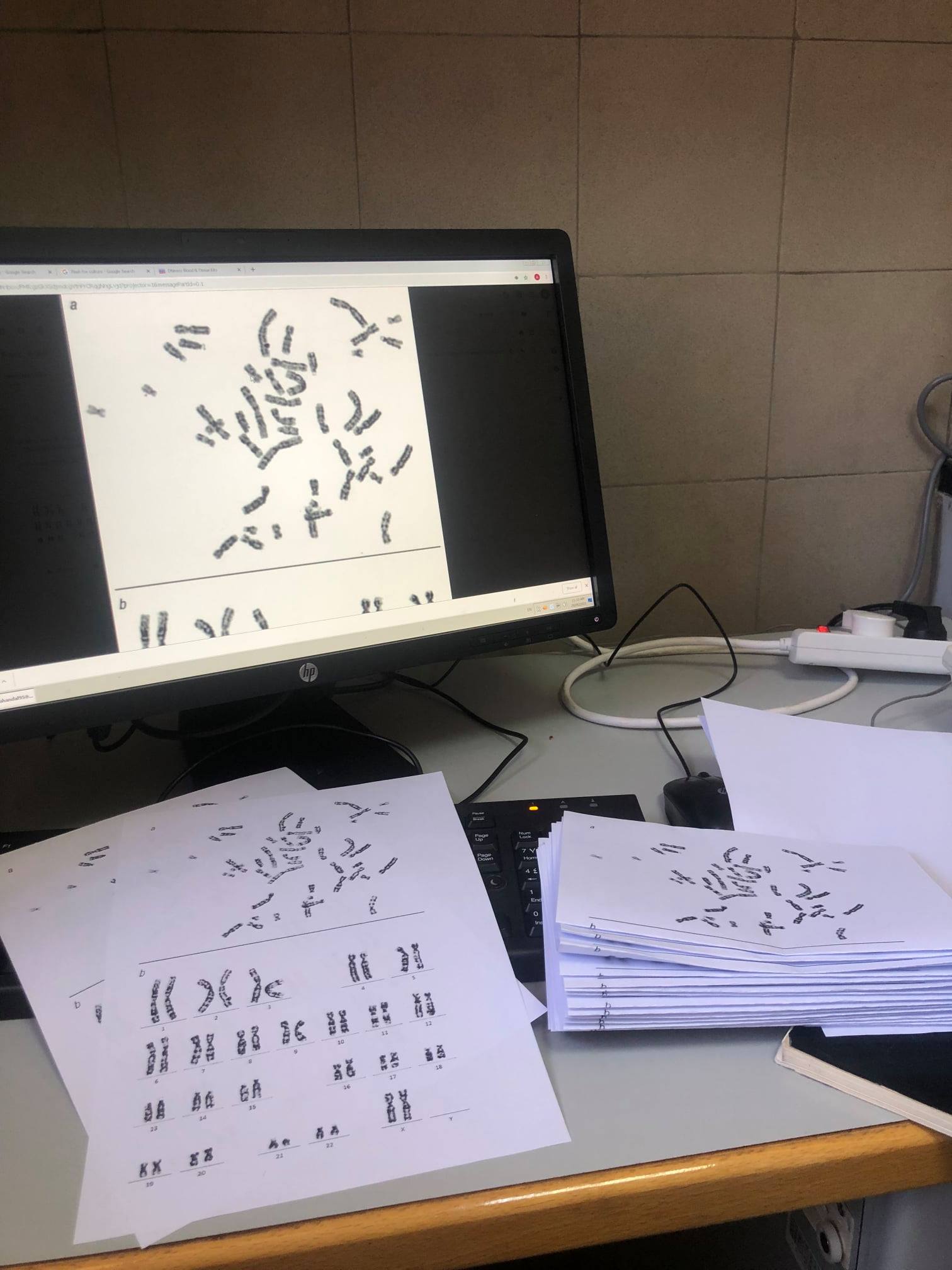
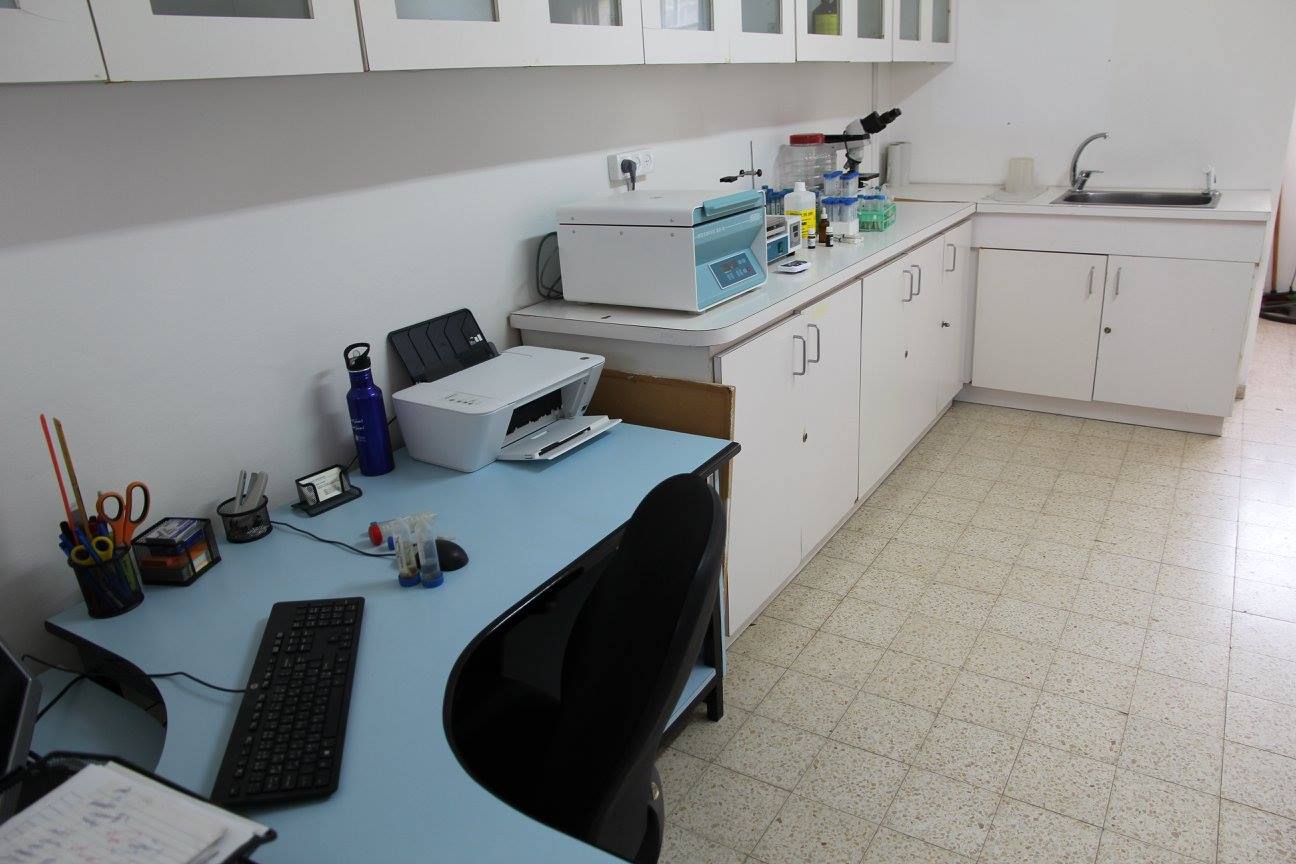
Medical zoology and Entomology units
The establishment of the medical zoology and entomology units was facilitated by a project that was funded by the Ministry of Education and Higher Education.These units were created to address the specific needs of the Palestinian population, with a primary focus on studying scorpion stings and animal bites. The newly formed unit is committed to researching areas directly impacting human health in Palestine, especially those related to animals acting as vectors for diseases affecting both humans and livestock. Through this center, our aim is to enhance knowledge and awareness regarding the environment we inhabit, encouraging people to respect and appreciate the remarkable beauty and diversity of Palestine. By conducting dedicated research and educational initiatives, we strive to contribute not only to scientific understanding but also to fostering a harmonious coexistence between humans and the unique ecosystems of our region.
